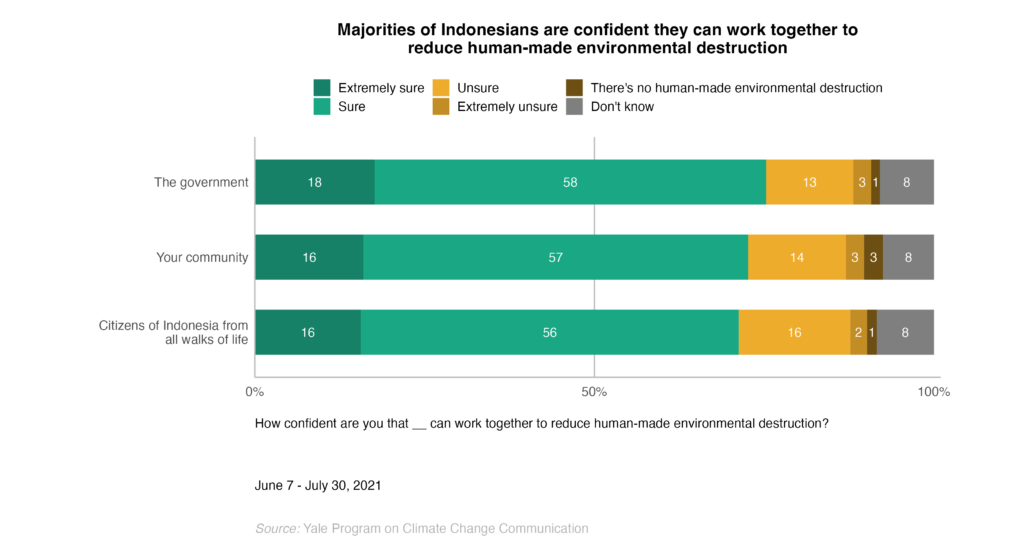Report · Oct 3, 2023
Climate Change in the Indonesian Mind
By Anthony Leiserowitz, Seth Rosenthal, Marija Verner, Sanguk Lee, Matthew Ballew, Jennifer Carman, Matthew Goldberg, Jennifer Marlon, Enggar Paramita, Mardiyah Chamim, Paramita Mohamad and Matthew Daggett
Filed under: Behaviors & Actions and Beliefs & Attitudes
7. Environmental Norms, Values, and Efficacy
7.1. A majority of Indonesians perceive social norms for taking action to reduce human-made environmental destruction.
Social science research has found that two types of social norms can have a powerful effect on people’s behavior: descriptive norms (the belief that friends and family are themselves behaving in a given way) and injunctive norms (the belief that friends and family expect you to behave in that way).Schultz, P. W., Nolan, J. M., Cialdini, R. B., Goldstein, N. J., & Griskevicius, V. (2007). The constructive, destructive, and reconstructive power of social norms. Psychological Science, 18(5), 429-434. https://journals.sagepub.com/doi/10.1111/j.1467-9280.2007.01917.x
A majority of people in Indonesia (64%) perceive a descriptive norm, saying that their family and friends make either “a lot of effort” (11%) or “enough effort” (53%) to reduce human-made environmental destruction. A large majority of Indonesians (83%) also perceive an injunctive norm, saying it is “extremely important” (25%) or “important” (58%) to their family and friends that they take action to reduce human-made environmental destruction.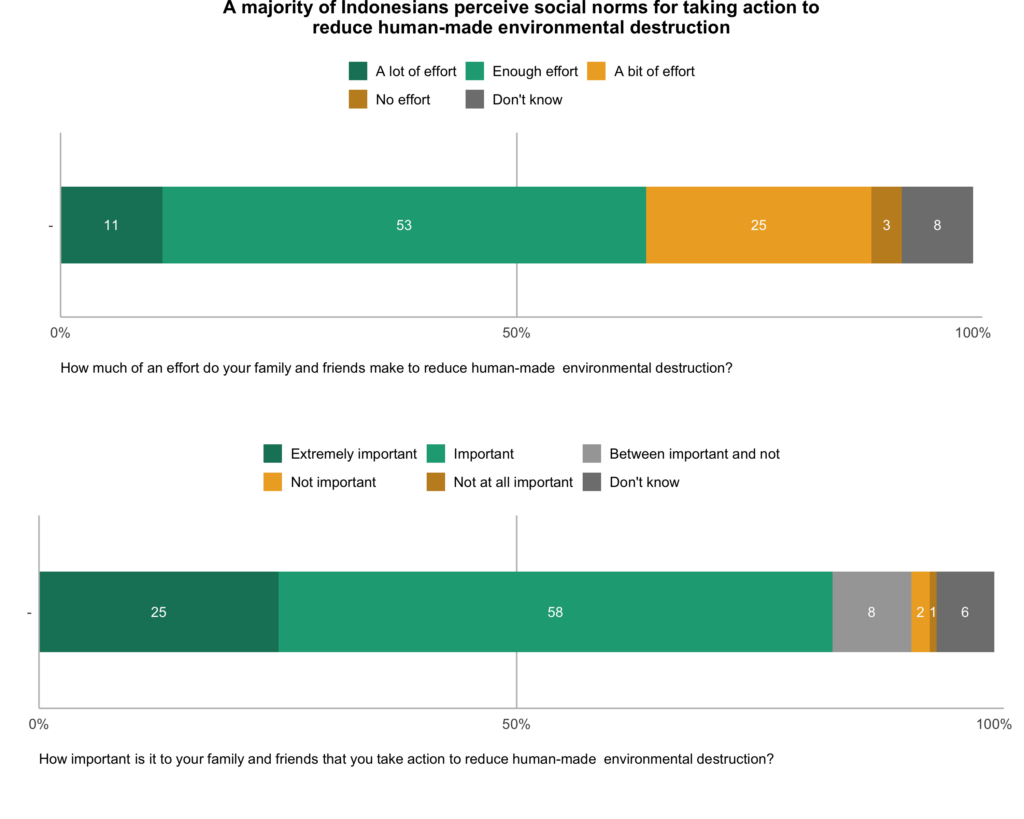
7.2. Large majorities of Indonesians feel morally obligated to protect the environment.
About nine in ten Indonesians (91%) agree that they feel morally obligated to protect the environment from human-made destruction for the common good today, including 24% who “strongly agree.” Similarly, nine in ten Indonesians (90%) agree that they have a duty to reduce human-made environmental destruction for future generations, including 25% who “strongly agree.” A large majority of Indonesians (82%) also agree that they feel guilty about the negative things humans have done to the environment, including 19% who “strongly agree.”
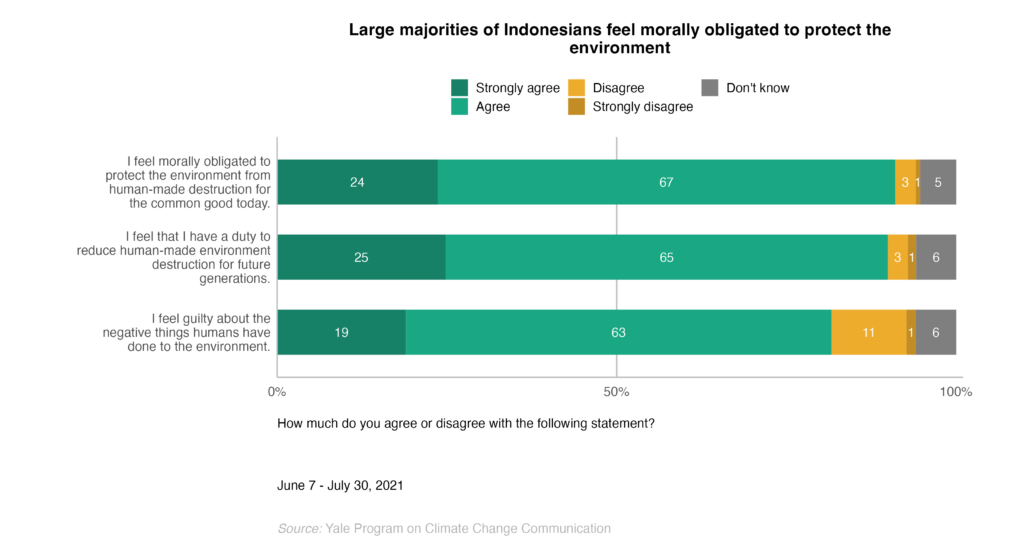
7.3. Most Indonesians share environmental values.
Nine in ten Indonesians (90%) agree that they share the same values with people who save and protect nature, including 36% who “strongly agree.” Additionally, a majority of Indonesians (70%) agree that they like to be identified as an “environmental activist,” including 21% who “strongly agree.”
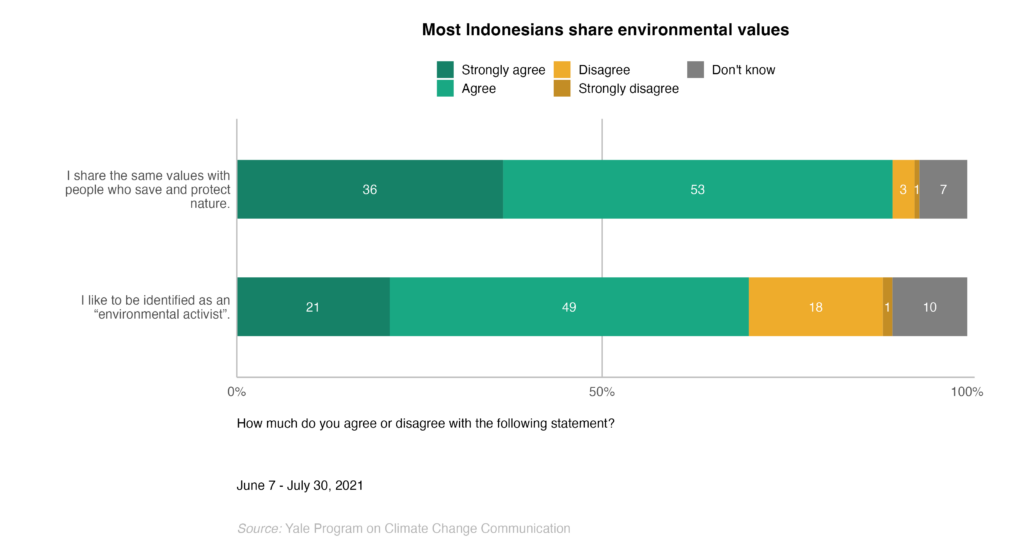
7.4. About one in four Indonesians think humans can reduce environmental destruction and that we will.
About one in four Indonesians (26%) think humans can reduce environmental destruction and that we will. Most Indonesians (63%) think humans could reduce environmental destruction, but either say “it’s unclear at this point whether we will do what’s needed” (32%) or “people aren’t willing to change their behavior, so we’re not going to” (31%). Very few Indonesians (4%) think humans can’t reduce environmental destruction. Only 1% say human-made environmental destruction is not happening, and 6% don’t know.
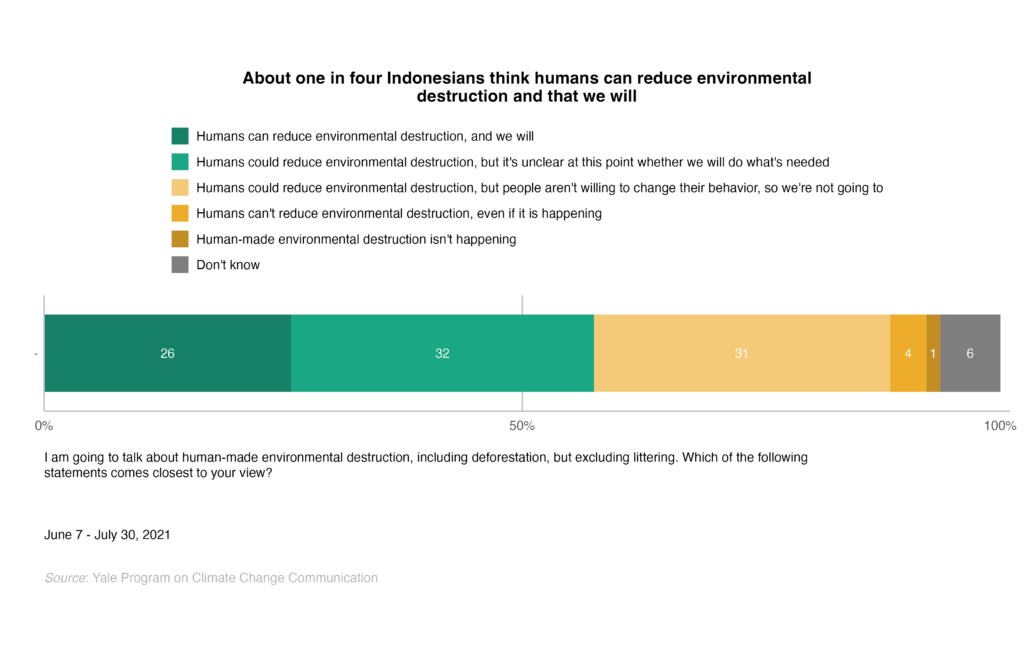
7.5. Majorities of Indonesians are confident they can work together to reduce human-made environmental destruction.
Perceived collective efficacy – the belief that people can work together to reach a desired outcome or goal – is an important motivator for people to take collective action.Bandura, A. (2000). Exercise of human agency through collective efficacy. Current Directions in Psychological Science, 9, 75-78. https://doi.org/10.1111/1467-8721.00064 Majorities of Indonesians say they are “extremely sure” or “sure” that the government (75%), their community (73%), and citizens of Indonesia (71%) can work together to reduce human-made environmental destruction.
